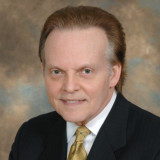
The American Heart Association is among the most influential, respected, and heavily supported non-profit organizations in the world. Its broad reach and commitment to being a vehicle for change toward the betterment of health and well-being was on full display at this year’s Scientific Sessions held in Philadelphia, PA. Tackling “Big Vaping Companies” and their supporters on behalf of the worlds’ youth was a powerful opening salvo, followed by an equally impactful emphasis on global access to health care data, “real-time” social media posting of high-tiered science for the medical and lay communities as a tool for truth, open and tangible displays of inclusivity, diversity, and knowledge-sharing, and collaborating with the World Economic Forum to emphasize the importance of big data, deep learning, artificial intelligence, and value in health care on a foundation of ethics, equity, and access to transformative information.
The AHA announced the launch of an interactive portal for AHA-funded research and highlighted an inaugural program dedicated to undergraduate research for those underrepresented in science. There were a greater number of 1) pivotal clinical trials presented (and openly discussed with a new format of a discussant setting the stage for the study results and concluding with take home messages), 2) Heart Hub “neighborhoods” for immersion, networking, career mentorship, and navigating personal and professional development and 3) Available resources for attendee family members such as child care, and 4) puppies — yes, puppies that served as a reminder that we are living, breathing, and caring creatures who share the planet and, in addition to giving unconditionally to our patients, need to take better care of ourselves and one-another.
The oral presentation formats uniformly emphasized communication, inquiry and scholarly exchange, as did the Heart Hubs, Science Zones, Fellows-in-Training sessions, and moderated posters.
Having attended each of AHA Scientific Sessions for nearly the past three decades, the most unique aspects of the 2019 program can be summarized with the following historical analogies superimposed on a theme of humanity, which collectively made for a wonderful experience.
Socrates would have enjoyed it: There were open dialogues for the sake of knowledge, free thought, and questioning to achieve deep understanding.
Dr. Benjamin Rush would have enjoyed it: The interface of medicine, in its most selfless form, society, and communing with a goal to serve the people — all people — was on display.
Dr. Albert Schweitzer would have enjoyed it: A reverence for life in all forms is a world view to live by and embrace wholeheartedly. Did I mention that there were puppies?
Alexander Hamilton would have enjoyed it: The human condition, diversity in its broadest terms, a spirit of inclusion, focused determination, and striving to make possible that which may be viewed as impossible is medicine, science, and service at its very best.
Creating an ethos of unlimited scholarship and academic potential for all is challenging and, at times, may seem beyond our collective reach; however, this year’s AHA Scientific Sessions now leads me to believe that it is possible if “we the people” are welcomed and shown the way. Indeed, the “truths become self-evident” in our quest to understand, prevent, heal, and stay human suffering.
What was unique about this conference compared to prior years? Everything.






